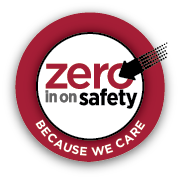
RaDonda Vaught, former RN at Vanderbilt University Medical Center, was found guilty of criminally negligent homicide on March 25, 2022 after a medical error turned fatal for her patient. The case has gripped the healthcare community and has many gravely concerned about the long-lasting impacts. There are many things that could be discussed about the case, but at minimum, one thing should rise to the surface: Patient safety is a partnership between those providing care and organizational leaders who design the care-delivery environment.
Every person who delivers healthcare is a human being, and, unfortunately, human beings make mistakes. The HPI Error Prevention training we completed in 2018 taught us that we encounter three types of errors, each with increasing risk of error:
- Skill-Based Performance – 1 in 1,000 acts performed in error (0.1%)
- Rule-Based Performance – 1 in 100 acts performed in error (1%)
- Lack of Knowledge-Based Performance – 30-60 of 100 decisions result in error (30% – 60%)
Every day we weave in and out of situations requiring skills, an understanding of the rules, and knowledge to deliver care to highly complex patients, while at the same time dealing with our own stress, worry, crisis, pandemic fog, financial concerns, family problems, and the list goes on. Collectively, we need to look at the RaDonda Vaught case and ask how we can keep this from happening at UAMS.
Frontline Staff
Care for Yourself
We are more vulnerable to make mistakes when we are distracted. This could be hunger, thirst, need to use the bathroom, lack of sleep, etc. It could also mean larger life concerns of relationships, children, finances, home situations, etc. One of the best ways you can help yourself prevent an error at work is to take care of yourself. Get the sleep you need before coming to work and take the time during work to eat a healthy meal, drink water, and use the bathroom. Seek out assistance for larger life issues. The Arkansas Employee Assistance Program is completely free to you. Our Psychiatric Research Institute offers comprehensive mental health treatment through AR Connect. And UAMS Wellness offers Supportive Conversations 24/7. Get the help you need to walk through the harder situations of life.
Be committed to utilizing the UAMS Safety Tools. These tools were part of the Error Prevention Training we had in 2018 and are part of new hire onboarding and annual education.
- Communicate Clearly
- Act on Concerns
- Respect, Reflect, Remind
- Engage for Excellence
These tools are designed to help you and your peers critically think through situations, ensure that communication is clear, and have a safe space to voice concerns. Consistent use of the tools incorporates these safety behaviors into your everyday work and dramatically reduces the risk that you will make an error.
UAMS Leaders
Culture of Safety
Culture is a combination of values and actions, and UAMS leaders are committed to a safe and just culture. This is explicitly outlined in UAMS Vision 2029. Safety is a core value at UAMS, not just in the delivery of care for patients, but in the provision of a fair and just culture for employees.
A Fair and Just Culture recognizes that competent professionals make mistakes, that many errors result from system issues, and that individuals should not be held accountable for honest mistakes or system issues. It promotes an atmosphere where employees are encouraged to report and discuss errors or ‘near misses’ without fear of reprisal, through a fair-minded assessment of events which in turn promotes system modifications to prevent future errors. A fair and just culture does not tolerate reckless behavior, gross misconduct, or willful violations. (Policy HR.1.03.)
Policy HR.1.03 Fair and Just Culture: Establishing Safe Systems through Effective Reporting and Balanced Accountability provides guidelines for fair and just analysis and management of errors or unsafe acts that occur in the workplace. The policy was developed to ensure that all employees are treated fairly when errors or unsafe acts occur. This policy also contains a decision guide to assist in the management of performance issues.
Take 2
Last year, the Center for Nursing Excellence introduced Take 2, an initiative to facilitate feedback about processes that we could change to reduce two steps in a nursing practice. We are going to support this initiative again, this time from a slightly different angle: Take 2, as in, scrap the first take, and try again.
We know we have opportunities to improve the systems we have in place to make the care environment even safer for you to deliver care. UAMS leaders are committed to making systems better to reduce the risk of error and preventing harm to patients. However, we cannot address issues that we do not know about. Please consider your daily routines in the care of patients and the issues you confront in the delivery of safe care. If you know of a system issue that could be addressed in partnership with pharmacy, lab, informatics, patient safety, or any other department, Take 2 is your opportunity to submit those issues.
Thank you for your commitment to safe care and safe care environments.

